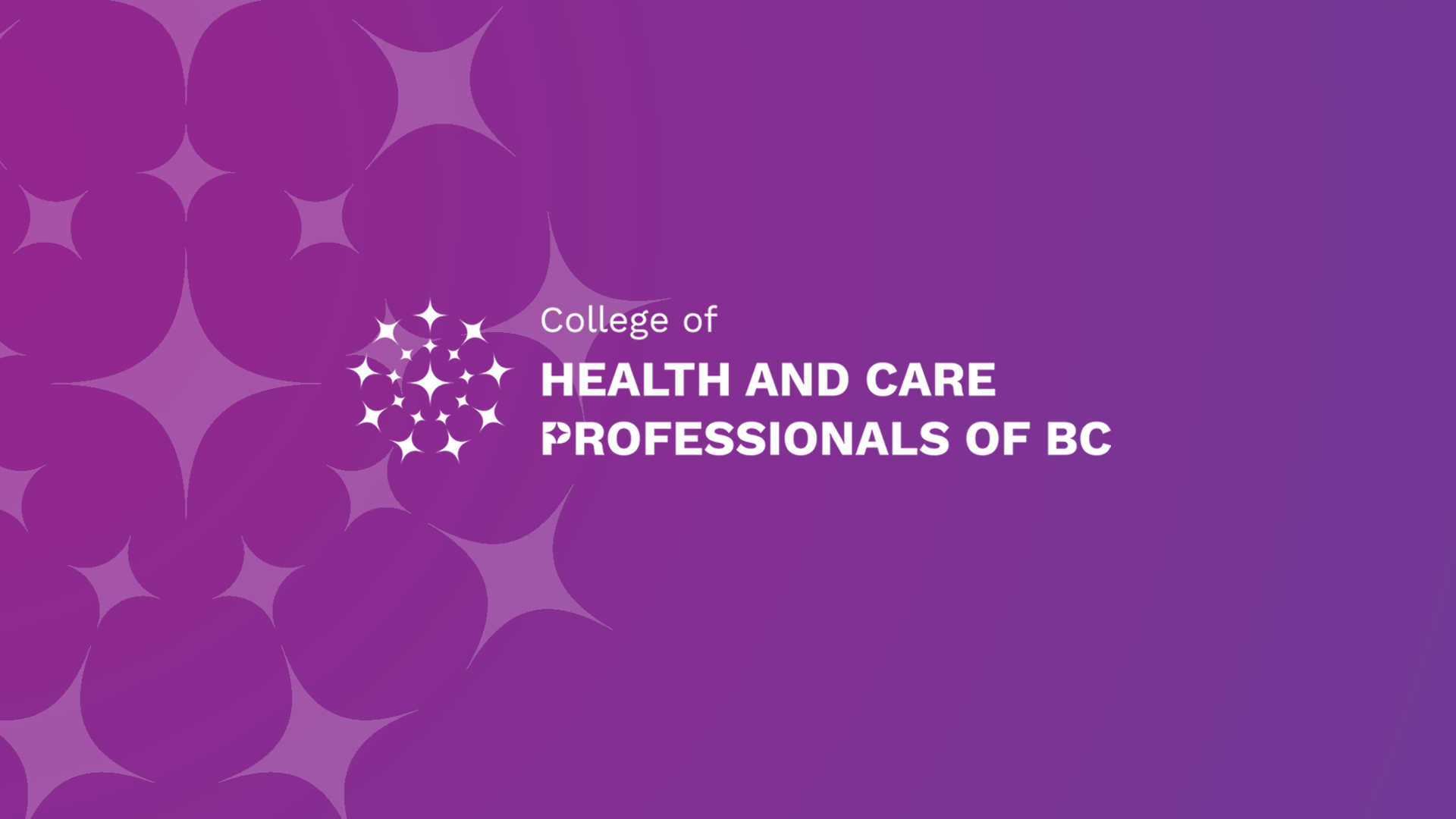The College of Health and Care Professionals of BC (CHCPBC) is moving forward with the development of a modernized and unified approach to a Quality Assurance Program (QAP). This program will support quality practice of more than 16,000 health and care professionals in nine professions and will be consistent with the Health Professions and Occupations Act (HPOA) when it is brought into force.
Read the Fact Sheet: Direction for a Unified Quality Assurance Program (PDF)
The new QAP will aim to improve client/patient outcomes, and support health professionals’ learning and performance by:
- Taking a unified approach to ensure consistency in public protection while reflecting profession-specific uniqueness;
- Assessing, monitoring, and supporting health professionals’ individual and collaborative performance, which is central to the delivery of safe care and improved client/patient outcomes;
- Including cultural safety and humility, health equity, and anti-discrimination initiatives;
- Supporting the prevention of harm by proactively identifying and addressing risks to patients and professional competence;
- Aligning with harmonized standards that will guide and inform QAP content; and,
- Meet the expectations for Quality Assurance and the guiding principles in the HPOA.
The process for developing a modernized and unified QAP
CHPCBC began exploring a new approach to QAP in February 2025. The College commissioned a report titled the “QAP Ideas and Design Report” to gather information and input about the current state of QA programs across the nine professions and to provide recommendations for the design of a new evidence-based QA program. The report, which was approved in principle by the Board in June 2025, contains detailed evidence to inform planning for the design, development, and implementation of a new QAP. The QAP will include individual and collaborative care competencies that are central to the delivery of safe care and improved health and care outcomes for clients/patients and the public. The new QAP must also be equitable, feasible, and sustainable, while prioritizing patient safety by addressing risks to patients and risks to competence.
Read the QAP Ideas and Design Report – full report (PDF)
Read the QAP Ideas and Design Report – executive summary (PDF)
Transition to the new QAP
To facilitate the design of this new program, health professionals regulated by CHCPBC will not have to report their legacy QAP requirements to the College effective July 1, 2025 until December 31, 2025. Although the reporting of QAP requirements will not be required, registrants must practise within the scope of practice of their profession and actively maintain their individual skills and competencies.
CHCPBC acknowledges the importance of professional development as one tool to maintain skills and support the delivery of safe care. Health professionals are encouraged to participate in professional development activities that are focused on preventing patient/client harm and maintaining performance.
The new QAP will include guided self-reporting related to professional development. However, quantified continuing education (i.e., reporting continuing education hours) will not be required.
In 2026, registrants will participate in transitional activities that will introduce the new and unified approach. Details on these activities will be shared as soon as they are available.
For more information
See the Quality Assurance Program page for the following additional information:
- A table that outlines the current QAP requirements that registrants do not need to report to the College effective July 1, 2025.
- Frequently asked questions and answers about the QAP transformation.

